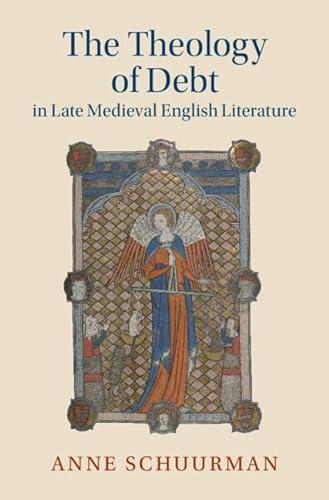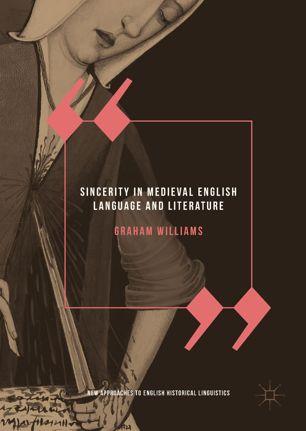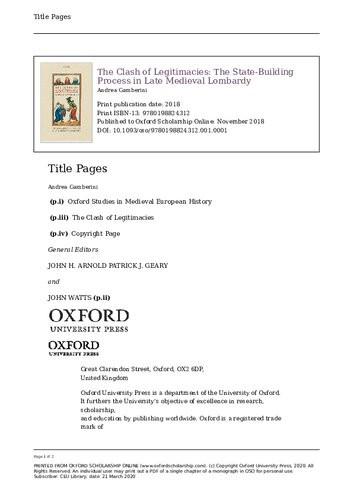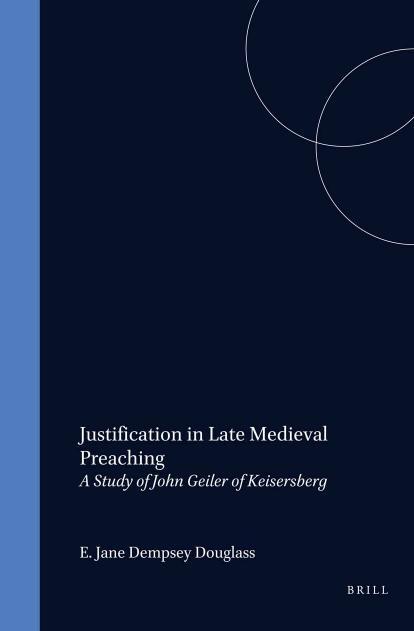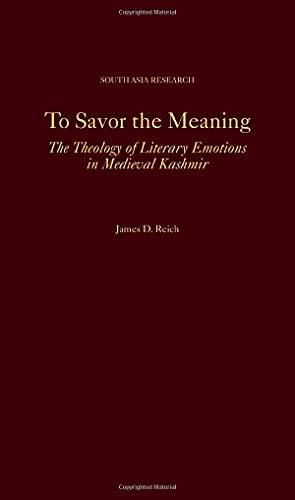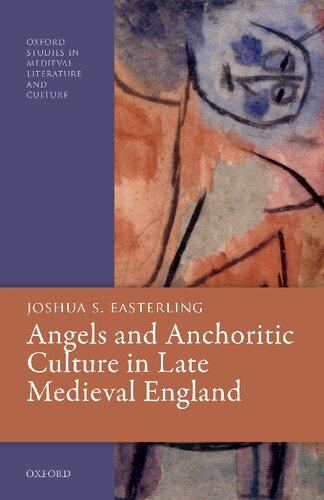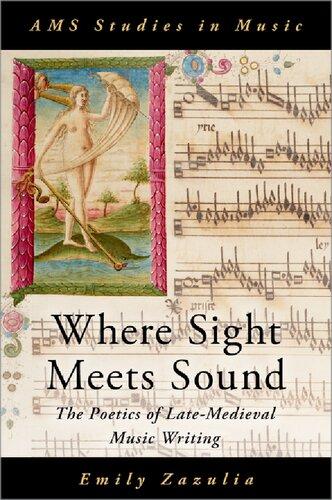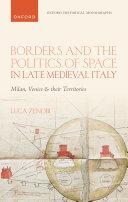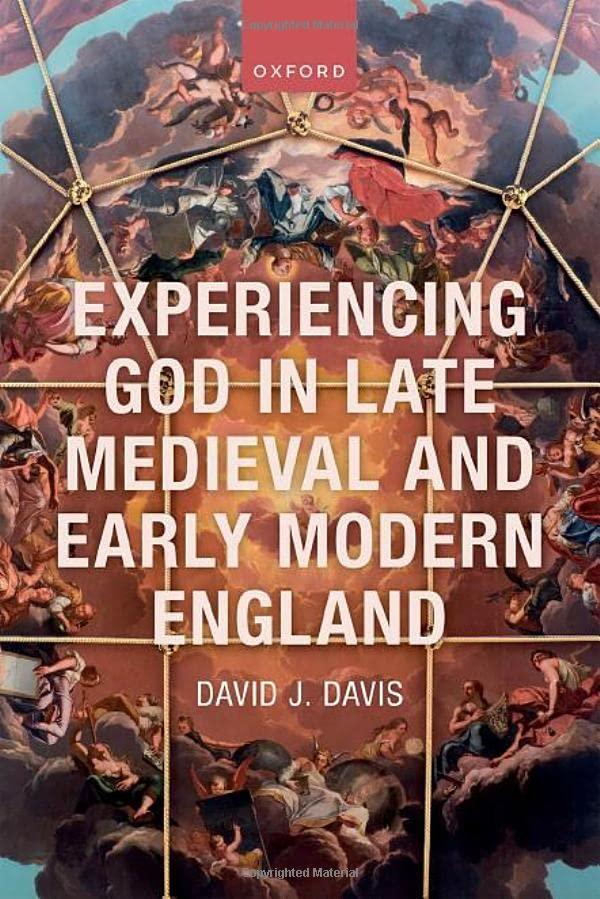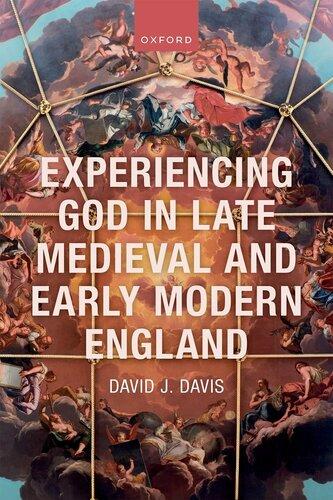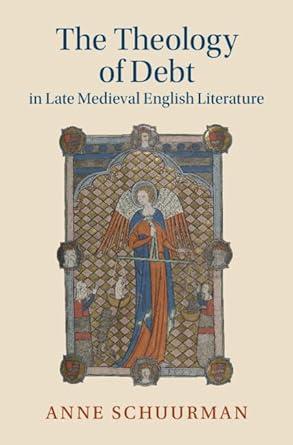The Theology of Debt in Late Medieval English Literature Schuurman Visit to download the full and correct content document: https://ebookmass.com/product/the-theology-of-debt-in-late-medieval-english-literatur e-schuurman/
More products digital (pdf, epub, mobi) instant download maybe you interests ...
Sincerity in Medieval English Language and Literature
1st ed. Edition Graham Williams
https://ebookmass.com/product/sincerity-in-medieval-englishlanguage-and-literature-1st-ed-edition-graham-williams/
The Clash of Legitimacies: The State-Building Process in Late Medieval Lombardy Andrea Gamberini
https://ebookmass.com/product/the-clash-of-legitimacies-thestate-building-process-in-late-medieval-lombardy-andreagamberini/
Justification in Late Medieval Preaching: A Study of John Geiler of Keisersberg Rcds
https://ebookmass.com/product/justification-in-late-medievalpreaching-a-study-of-john-geiler-of-keisersberg-rcds/
To Savor the Meaning: The Theology of Literary Emotions in Medieval Kashmir James D. Reich
https://ebookmass.com/product/to-savor-the-meaning-the-theologyof-literary-emotions-in-medieval-kashmir-james-d-reich/
Angels and Anchoritic Culture in Late Medieval England
Joshua S. Easterling
https://ebookmass.com/product/angels-and-anchoritic-culture-inlate-medieval-england-joshua-s-easterling/
Where Sight Meets Sound: The Poetics of Late-Medieval Music Writing Emily Zazulia
https://ebookmass.com/product/where-sight-meets-sound-thepoetics-of-late-medieval-music-writing-emily-zazulia/
Borders and the Politics of Space in Late Medieval Italy: Milan, Venice, and their Territories Luca Zenobi
https://ebookmass.com/product/borders-and-the-politics-of-spacein-late-medieval-italy-milan-venice-and-their-territories-lucazenobi/
Experiencing God in Late Medieval and Early Modern England David J. Davis
https://ebookmass.com/product/experiencing-god-in-late-medievaland-early-modern-england-david-j-davis/
Experiencing God in Late Medieval and Early Modern
England David J. Davis
https://ebookmass.com/product/experiencing-god-in-late-medievaland-early-modern-england-david-j-davis-2/
THETHEOLOGYOFDEBTINLATE MEDIEVALENGLISHLITERATURE Exploringdebt’spermutationsinMiddleEnglishtexts,Anne Schuurmanmakestheboldclaimthatthecapitalistspirithasits rootsinChristianpenitentialtheology.Herargumentchallengesthe longstandingbeliefthatfaithandtheologicaldoctrineintheMiddle Ageswereinimicaltothedevelopmentofmarketeconomies,showingthatthesameideaofdebtisinfactintrinsictoboth.Thedouble penitential–financialmeaningofdebt,andthespiritualparadoxesit creates,isalinchpinofscholasticandvernaculartheology,andof theimaginativeliteratureoflatemedievalEngland.Focusingonthe doublenessofdebt,thisbooktracesthedynamicbywhichthe Christianasceticideal,initsrejectionofmaterialprofitandwealth acquisition,endsupproducingpreciselywhatitcondemns.Thistitle ispartoftheFlipitOpenProgrammeandmayalsobeavailable OpenAccess.CheckourwebsiteCambridgeCorefordetails.
isAssociateProfessorofEnglishattheUniversity ofWesternOntario.Sheistheauthorof ShameandGuiltinChaucer ()andco-editorof AnEpistleofNoblePoetrye ().
FoundingEditor
AlastairMinnis, YaleUniversity
GeneralEditors
MarisaGalvez, StanfordUniversity
DanielWakelin, UniversityofOxford
EditorialBoard
AnthonyBale, Birkbeck,UniversityofLondon
ZygmuntG.Barański, UniversityofCambridge
ChristopherC.Baswell, BarnardCollegeandColumbiaUniversity
MaryCarruthers, NewYorkUniversity
RitaCopeland, UniversityofPennsylvania
RobertaFrank, YaleUniversity
AlastairMinnis, YaleUniversity
JocelynWogan-Browne, FordhamUniversity
Thisseriesofcriticalbooksseekstocoverthewholeareaofliteraturewrittenin themajormedievallanguages – themainEuropeanvernaculars,andmedieval LatinandGreek – duringtheperiodc.
.Itschiefaimistopublishand stimulatefreshscholarshipandcriticismonmedievalliterature,specialemphasis beingplacedonunderstandingmajorworksofpoetry,prose,anddramain relationtothecontemporarycultureandlearningwhichfosteredthem.
Recenttitlesintheseries
JenniferA.Lorden FormsofDevotioninEarlyEnglishPoetry:ThePoeticsofFeeling
HarrietSoper TheLifeCourseinOldEnglishPoetry
TaylorCowdery MatterandMakinginEarlyEnglishPoetry:LiteraryProduction fromChaucertoSidney
OliviaHolmes BoccaccioandExemplaryLiterature:EthicsandMischiefinthe “Decameron”
JosephTaylor WritingtheNorthofEnglandintheMiddleAges
MarkFaulkner ANewLiteraryHistoryoftheLongTwelfthCentury:Languageand LiteraturebetweenOldandMiddleEnglish
MarkChincaandChristopherYoung LiteraryBeginningsintheEuropeanMiddle Ages
AndrewM.Richmond LandscapeinMiddleEnglishRomance:TheMedieval ImaginationandtheNaturalWorld
DavidG.Lummus TheCityofPoetry:ImaginingtheCivicRoleofthePoetin Fourteenth-CenturyItaly
RichardMatthewPollard ImaginingtheMedievalAfterlife
Acompletelistoftitlesintheseriescanbefoundattheendofthevolume.
THETHEOLOGYOFDEBT INLATEMEDIEVAL ENGLISHLITERATURE ANNESCHUURMAN TheUniversityofWesternOntario
ShaftesburyRoad,Cambridge ,UnitedKingdom
OneLibertyPlaza, thFloor,NewYork, ,USA
WilliamstownRoad,PortMelbourne, ,Australia
–, rdFloor,Plot ,SplendorForum,JasolaDistrictCentre,NewDelhi – ,India
PenangRoad,#–/,VisioncrestCommercial,Singapore
CambridgeUniversityPressispartofCambridgeUniversityPress&Assessment, adepartmentoftheUniversityofCambridge.
WesharetheUniversity’smissiontocontributetosocietythroughthepursuitof education,learningandresearchatthehighestinternationallevelsofexcellence.
www.cambridge.org
Informationonthistitle: www.cambridge.org/
©AnneSchuurman
Thispublicationisincopyright.Subjecttostatutoryexceptionandtotheprovisions ofrelevantcollectivelicensingagreements,noreproductionofanypartmaytake placewithoutthewrittenpermissionofCambridgeUniversityPress&Assessment.
Firstpublished AcataloguerecordforthispublicationisavailablefromtheBritishLibrary.
LibraryofCongressCataloging-in-PublicationData
:Schuurman,Anne,author.
:ThetheologyofdebtinlatemedievalEnglishliterature/AnneSchuurman, TheUniversityofWesternOntario. :Cambridge;NewYork,NY:CambridgeUniversityPress, .|Series: Cambridgestudiesinmedievalliterature|Includesbibliographicalreferencesandindex.
(print)|
(ebook)| (hardback)| (paperback)|
(epub) : :Englishliterature–MiddleEnglish, -–Historyandcriticism.| Debtinliterature.|Penanceinliterature.|Theologyinliterature.|Economicsinliterature.| LCGFT:Literarycriticism.
: . (print)|LCCPR.D (ebook)|
LCrecordavailableat https://lccn.loc.gov/
LCebookrecordavailableat https://lccn.loc.gov/
Hardback CambridgeUniversityPress&Assessmenthasnoresponsibilityforthepersistence oraccuracyofURLsforexternalorthird-partyinternetwebsitesreferredtointhis publicationanddoesnotguaranteethatanycontentonsuchwebsitesis,orwill remain,accurateorappropriate.
Contents Acknowledgements page viii
ListofAbbreviations ix
Introduction:MiddleEnglishDebtandtheSpirit ofCapitalism
CounterfeitMoney:DebtandFormintheMiddle EnglishCharterLyrics
SecretDebts:CreditandFaithintheSpendthrift KnightRomances
HomeEconomics:TheMarriageDebtin TheWifeof Bath’sPrologue and Tale and TheMerchant’sTale
“Whatisynoghtomene”:MeasuringDebtinLangland’ s PiersPlowman
PiersPlowman andtheInappropriable
Epilogue
Notes
Bibliography
Index
Acknowledgements Mydebtofgratitudehasbeenaccruingformanyyears,butitisonethatIam happytoowe.Theresearchandwritingofthisbookweresupportedbya generousgrantfromtheSocialScienceandHumanitiesResearchCouncil ofCanada.ThelineofinquirythatendedupherebeganattheUniversityof AlbertawhenIwas finishingmydoctoraldissertationonshameandguilt inChaucer’snarrativepoetry,andforthisIamgratefultoStephenR.Reimer; hisinsightfulcommentsandquestions,manyofwhichIhadnoanswersfor atthetime,broughtmetotherightpointofdeparture.Iwouldliketothank AndrewGallowayforchairingafruitfulsessiononeconomicsandMiddle EnglishliteratureattheIMCinLeedsandKaraGastonforinvitingmetospeak attheUniversityofToronto’sPremodernResearchSymposium,where IreceivedkindencouragementandexcellentquestionsabouttheMiddle Englishcharterlyrics.AttheUniversityofWesternOntario,Iamgratefulto mycolleaguesfortheirsupportandhelpfulcommentsonvariousaspectsofthe project,particularlyJaneToswell,RichardMoll,AlisonConway,BryceTraister, KateStanley,MaryHelenMcMurran,andMatthewRowlinson.Warmest thankstoEmilyPezandRebeccaPowerfortheircarefuleyesandmeticulous workincopy-editingthebookandpreparingtheindex.EmilyHockleyand GeorgeLaveratCambridgeUniversityPresswereamiablysupportiveduringthe reviewprocessandhaveguidedthebooktoproductionwithunfailingcompetence.Thebookwasgreatlyimprovedthankstotheastuteandgenerous suggestionsoftwoanonymousreadersforthePress.Iamcontinuallydazzled andhumbledbythelearnednessandintegrityofmyfellowmedievalists.
IwouldliketothankmyfatherHenrySchuurmanforthegeneraland theparticular – forbeingmy firstteacherandforinvaluableconversations aboutdebt,theFranciscans,andthenatureofmoney.ToSofia,Isabel, andAda,Iamdeeplyandaffectionatelythankfulforthegiftofperspective.
Finally,thedebtIowetomywifeZoëSinel,myidealinterlocutor,mymost incisiveandfaithfulreader,istrulymeasureless.Everygoodideatookshape inourconversations.Anyerrorsoroversightsthatremainareminealone.
Abbreviations AFHArchivumFranciscanumHistoricum
CCSLCorpuschristianorum.Serieslatina
CSELCorpusscriptorumecclesiasticorumlatinorum
EETSEarlyEnglishTextSociety
MEDMiddleEnglishDictionary
OEDOxfordEnglishDictionary
PLPatrologiaecursuscompletus.Serieslatina,generaleditorJ.P. Migne(Paris,
)
Introduction MiddleEnglishDebtandtheSpiritofCapitalism Mensalalswayhelderekkenyngessere OfalgudesþatGodhasgefenþamhere, Alsofgudesofkyndeandgudesofgrace Andgudesofhapþatmenpurchace. [...]
Idredemanyinarriragemonfalle Andtilperpetueleprisongang, Forþaidespendedþagudswrang. ForwhiGodhasgyfenherenathyng. Ofwhilkhewillenoghthafrekkenynge. ThePrickofConscience,lines –
Thispassage,fromthepopularmid-fourteenth-centuryNorthumbrian poem ThePrickofConscience,depictsthelastjudgmentasacosmicaudit andChristasanaccountantofsouls,weighingdebitsagainstcreditsand measuringprofits. ThosewhoinvestedwiselythegoodsofGodare blessed,whilethosewhofailedtoturnaprofitorwhofellintodebtare damnedforeternity.Asitinstructsitsreadersonthe “wrechednes” of humannature,thedayofjudgment,thetormentsofhell,andthejoysof heaven,thepoemcontinuallyremindsthemthat “Nasynþanunrekend salbe.” ThisrefrainconjuresanimageofChristianmoralityasaledger,a businessofmathematicalcalculations,butitalsoinstillsaprofound penitentialself-awareness,sinceallsins,nomatterhowsmallorhidden, willbecountedonthedayofreckoning. ThePrickofConscience thus articulateswithstarkandterrifyingclaritytheeconomicformulaethat providetheessentialscaffoldingoflatemedievalpenitentialdoctrine. The poemdrawsonJesus’steachingsintheNewTestament,suchasthe parableofthetalents,which,withitsinjunctiontomakethemostof one ’sGod-givengoods,providesthemostdirectBiblicalsourceofthe passagequotedabove.TheideaofsinasadebtisenshrinedintheLord’ s Prayer,whichasks, “foryyuetovsouredettis,asweforyyuentooure
dettouris”;andtheideathatthesacrificeofChristisapaymentforthis debtofsin,apaymentthatredeemsthesoulsofsinnersconsignedtohell, isdevelopedextensivelyinthewritingsofPaul.
AsIwillshowinthisbook,latemedievalwriters,bothpoetsand theologians,followedBiblicaltraditionandputtheideaofdebtatthe centreoftheirsoteriological,economic,andpoeticvisions.Geoffrey ChaucerandWilliamLanglandweretwosuchfourteenth-century Englishwritersforwhomdebtservedasakeymetaphor,aproductive economictool,andatheologicallinchpin.Bothusecommercialand economiclanguagetodescribethedebtofsinandthemechanismsof the finalreckoning.Langland’smonumentaldream-vision PiersPlowman concludeswiththeLatinphrase “Reddequoddebes” (paywhatyouowe) repeated fivetimesinthe finaltwopassūs.Chaucer’sParson,hisideal representativeoftheclericalestate,definessinasthatwhichdeprivesman ofhisabilityto “paye[...]hisdettetoGod.” FortheParson,thegiftof lifeitselfcreatesadebt,onethatsincompoundsbyexpendingthespiritual creditwemightusetopayforourlives. InMiddleEnglishromance,the knight’sobligationstohisfellowsandhiskingareoftenframedasdebts,so thattheabilitytorepaywhatoneowesfunctionsasacrucialmarkerof individualhonour.Infabliaux,unpaiddebtsare,likewise,asourceof shame,whilethepowerthatacreditorwieldsoverhisdebtorisafrequent sourceofironyandhumiliation.AndintheMiddleEnglishdevotional lyricsknownasthe “ChartersofChrist,” themetaphorofsinasadebtis extendedtoimaginetheredemptionasalegallandtransferandthedutyof charityasarentpaidtoChrist.
ThelanguageofdebtispervasiveinMiddleEnglish,asitisintheBible, andyetintheformidablebodyofscholarshiponthesacramentandhistory ofpenance,thereisnoworktodatethatfocusesspecificallyonthe conceptualizationofsinasadebt. The fieldofeconomichistoryoffers richlydetailedstudiesofdebtandcreditinmedievalEnglishandEuropean economies,butthegrowingnumberofliterarystudiesoneconomic themeshaveyettograpplewiththecentralityofdebtinMiddleEnglish writing. MuchofthisliterarycriticalworkfocusesontheriseofcommercialisminlatemedievalEnglandandseekstounderstandtheattitudes andresponsesofMiddleEnglishwriterstomercantilismand monetization,butscholarshaveyettoconsidertheimportanceofdebt inthesecontexts,ortheremarkablefactthat,forlatemedievalwriters,the penitentialandthe financialmeaningsofdebtwereinextricable.
Onthecontrary,debtistypicallyassumedtofunctionmerelyasa metaphorinMiddleEnglishliterature,asawell-worn figureofspeech
thatdoesnottellusanythingnewaboutthenatureofsinintheological terms,orabouttherealitiesofdebt,credit,andexchangeineconomic terms.CriticalreadingsofLangland’sinsistencethatsalvationdependson payingone’sdebts,forexample,orofChaucer’sdefinitionofsinasadebt toGod,tendtotakeforgrantedaone-waymetaphoricalrelationbetween thespiritualtenorandtheeconomicvehicle.Christ’sbloodisnotaliteral paymentbuta figurativeone.Inadebtofsinoneowescontritionbutnot money.DerekPearsall,forinstance,notingthat “commercialmetaphors arethestock-in-tradeofbothbiblicalparablesandFranciscanexempla,” warnsagainstgivingtoomuchweight “totheliteralsignificanceofpoetic metaphor.” Andyet,MiddleEnglishwritersconsistentlydeploydebt languageinawaythatexposestheslipperinessofvehicleandtenorin economicmetaphors.AsIwillshow,muchoffourteenth-centuryspiritual vocabularyiseconomicpreciselybecauseeconomicsareaspiritual business,justas,in ThePrickofConscience,mattersofthesoulare inherentlyeconomic.
Theallegoricalslipperinessofdebtmaybeunderstoodbyanalogywith thedoctrineoftheIncarnation,insofarastheembodimentofthedivinein humanformservedasa figureoflinguistic figurationinmedievaltheories ofsignification.Inhiswell-knownformulationofthis figuration, Augustinewrites,
Whenwespeak,thewordwhichweholdinourmindbecomesasoundin orderthatwhatwehaveinourmindmaypassthroughtheearsof fleshinto thelistener’smind:thisiscalledspeech.Ourthought,however,isnot convertedintothesamesound,butremainsintactinitsownhome, sufferingnodiminutionfromitschangeasittakesontheformofaword inordertomakeitswayintotheears.InthesamewaythewordofGod sufferednochangealthoughitbecame fleshinordertoliveinus.
AsMarkD.Jordanputsit,forAugustine,itisnotonlythatthewordsof theBible “conveytheWord,itisthattheyare like theWord.” God representsHimself,makesHimselfaccessibletohumankind,inthe figure andformofChrist,justaslanguagerepresentsthingsinsignssotheymay beapprehendedbythehumanmind.Andyet,atthesametime,the Incarnationisalsoanevent,arealthinginitself;accordingtothepatristic theologianTertullian, “thevirginconceivedinthewomb,not figuratively [non figurate];andshebroughtforthEmmanuel,GodJesuswithus,not metaphorically[nonoblique].” AsCristinaMariaCervoneobserves,for medievaltheologians, “Logosissubstantive,notlinguistic.”
Bothsignifierandsignified,andmetaphorofmetaphor,theIncarnation generatesdizzyingparadoxes.Similarlydestabilizingandcapacious,debt
or,inLatin, debitum,isbothametaphorandathinginitselfinmedieval Christiantheology.Asametaphorforsin,itcontrastswithorcomplementsotherBiblicalimages,suchasburden,stain,orpollutant,usingthe economicconditionofowingorbeinginarrearstoillustratethecondition ofguiltorlack.Asathinginitself,adebtissimplysomethingowedto another,anobligationordutyassuch,andnotnecessarilyonethatcanbe quantifiedmonetarily.Inthisway,initssemanticrelationtosin,debtisa Janus-word,atoncetheobligation and thebreakingoftheobligation, simultaneouslydenotingandallegorizing.AnditissonotonlyinEnglish andinLatinbutinmostIndo-Europeanlanguages:forexample,inGreek, opheilō designatesthestateofbeinga financialdebtoraswellashavinga duty,whileinGerman, Schuld meansbothmoralguiltand financialdebt. Inthislight,thereseemslittledangerofpushingtoofar “theliteral significanceofpoeticmetaphor.” Indeed,tracingtheworkingsandsignificanceofdebtinlatemedievalliteraturerequiresthatweextendtheliteral significanceofpoeticmetaphorasfarasitwillgo,andbeyond,evenas MiddleEnglishwritersdissolvedstableboundariesbetweenspiritualallegoryandeconomicrealityintheirrepresentationsofdebt.
When,inhisfragmentaryessay “CapitalismasReligion,” Walter Benjamininvitedusto “considerthedemonicambiguity” ofthe Germanword Schuld,hewasreflectingontheword’sdoublereligious andeconomicmeaning. Recentscholarshipsuggeststhatdebtisdefined bydoublenessinotherways,too.Scholarsanalyzingtheworkingsofthe new “debtage” orthe “contemporarycultureofdebt” oftenfocusondebt asatoolofpoliticaloppressionandadriverofunjustandunsustainable economicgrowth. Butaprominentthreadweavingthroughthiscritique ofdebtistheideathatdebthasbecomethecentralfactandproblemof twenty-first-centurysocial,political,andeconomiclife,notonlybecauseof theinjusticeanddespairitinflictsbutalsobecauseoftheconsolationand enjoymentitoffers.Ontheleveloftheindividual,inaneconomiccontext ofwagestagnation,jobinsecurity,andrisingcostsofliving,indebtedness –borrowingtopayfortheessentialsoflife,aswellasforprestigeorluxury consumergoods – is,often,theonlyavenueofparticipationintheglobal capitalisteconomy;inthiscontext,debtappearstobetheonlypathto human flourishing. Thefactthattheliberatorypotentialofdebtis usuallyshort-livedorevenillusory,andoftenservesinfacttocompound theburdenofdebt,hasprovennodeterrenttoever-greateramountsof borrowing.Onthecorporatelevel,thelevelofthestateandthe financial industry,theseoperationswritlargemakepossiblemyriadformsofprofit andproduction.Entirefederalbudgetshavebecomesinglelinesin
SeparateSpheres? sovereigndebtssolargetheyseemtoexistonlyinarealmofpure abstraction;newmoneyitself,increasingly,iscreatedthroughdebt.The productivecapacityofdebtis,inessence,a “powertoturnideasinto realitiesthroughinvestingandpurchasing,creatingtheeconomicworld –apowerthatMarxdidnothesitatetocalldivine.”
SeparateSpheres? Theallegoricalslippageinherentindebtiscounter-intuitivebecauseweare accustomedtothinkingofthedomainsofreligionandeconomicsas utterlyandideallyseparate,andweowethisnotionofseparatenessinno smallparttomedievaltextsandtheologiansthemselves.Inotherwords, debtistypicallyreadasmeremetaphorpreciselybecausemedievalwriters sooftencondemnedthematerializationofspiritualthingsasatypeof corruption.Evenasheinscribesaneconomyofsalvationthatvalorizes labour,venture,andwagepayment,Langland’ssharpandfrequentattacks ondishonestmerchants,bribe-takers,simoniacs,andespeciallyonfriars whocarryouttheirspiritualofficesinserviceofcrasslymaterialistmotives, seemtoevincearejectionoftheburgeoningprofiteconomy “inthe interestsofwhathecalls ‘truth’– thatvalueofanidealfeudalsociety whichencompassesbothjusticeandfeudalloyalty.” Langland’ sprotest, moreover,alignsatmanypointswiththeChurch’ sown “historicalresistancetothemoneyeconomy” andwiththeologians’ andpreachers’ condemnationofmerchantsandprofit-motivatedactivity.Indeed,thelate medievalsuspicionofmoney,markets,andcommercialismseems,at first blush,tobeunanimousandubiquitous,anditisbuttressedbyalong historyofChristianexhortationstootherworldliness.Gratian’ s Decretum statesthat “amerchantisseldom,ornever,abletopleaseGod.” St. Franciscomparesmoneytoexcrement; PeterDamianrecountsavision inwhichapieceofsilvergiventohimbyanabbotcauseshisintestinesto swarmwithvermin TheChurch’ sofficialprohibitionofusuryinvoked theunnaturalnessofgeneratingmoney,notfromlabourorproduction, butfrommoneyitself,andthewrongfulnessofsellingtime. Jesusmay haveusedeconomicmetaphors,buthealsooverturnedthetablesofthe moneychangersinthetempleandinstructedhisdisciplestogiveupallof theirmaterialpossessionsinordertofollowhim.Thecurrentsof asceticismand contemptusmundi rundeepintheBiblicaltraditionand inmedievalChristianthought.
Incriticalreadingsoflatemedievaltexts,theperceptionofaninherent tensionbetweentheologyandeconomicsproducesaninterpretive
paradigmrootedinadichotomyofspiritandmatter,androotedalsoinan imperativetoclearlydistinguish “temporalþing” from “goostlyþing.” Insuchreadings,theproblemwithLangland’scorruptfriarsandtheireasy penanceisnotonlythattheypursuepersonalgainwhentheyshouldbe shepherdingsoulsbutalsothattheyreifyspiritualtruthsandelevategross matteraboveinnerfeeling.Likewise,theproblemwith ThePrickof Conscience’scalculatingChrististhathumanactions,bothgoodandsinful, arereducedtotalliesonaledgerwithnoregardtocontextoreven, possibly,intention.LeePattersonarguesthatthemostimportantaspect oflatemedievalEnglishreformistthinkingis “itsinsistenceonthepriority oftheinnertotheouter,ofthemeaningtotheform,ofthespirittothe letter,ineveryaspectofreligiouslife.” Similarly,DavidAerscontends thattheearlycapitalistethos,withitsemphasisonindividualismandthe productionandconsumptionofmaterialgoods,wasalientoLangland’ s “neo-Franciscan” valuesofpoverty,penitence,andcommunity AccordingtoPearsall,Langland’ s “socialidealsalwaysremainthoseof agrarianandmanorialculture,revealingthepoet’sinabilitytoapproveof mercantilisminanyformbeyonda ‘primitiveformofbarteror exchange.’” AndJohnA.YunckcharacterizesLangland’ssatireasan “instinctivelyconservative” outcry “againstaworlddominatedbymoney ormeed[...][Langland’s]isthevoiceoftheCommonChristianMan cryingintheeconomicwilderness.” Thesecriticalperspectivesarebased implicitlyontheassumptionthatinnerspiritandoutermattercanand shouldbeconceptualizedasdistinct,andthatconfusionbetweenthetwo categoriesinmedievaltextsmustbeaneffectofsatireorcomplaint,or,if theconfusionisuncriticalandunironic,asinthecaseof Conscience, ofa crudeandharshpenitentialdoctrine.ModernreceptionofChaucer’santiclericalsatire,too,hasdependeduponaclearconceptualdivisionbetween matterandspirit,economicsandreligion.InChaucer’ s TheFriar’sTale and TheSummoner’sTale,theclericalabuseofpenitenceconsistsof extortingmoneyandmaterialgoodsfromsinnersinplaceofspiritual payment;in TheSummoner’sTale,extortionplaysoutinpassive-aggressive terms,inthefriar’spastoraleffortstoconvinceThomasthathe ought to givetothefriary,sothattheirprayerswillpaythedebtthatheowesforhis bodilyhealthandhiseternalsoul.ThepunchlinesofChaucer’sjokesseem todependonthebeliefthatameasuring,quantifyingtheologyisa perversionof “ true ” spirituality.JohnV.Fleminghasarguedthat “thereal thrustofthecomedyis[its]exposureofliteralism.” AsGlendingOlson putsit,forChaucer, “Godisbeyondrationalcalculation.” Aswith Langland’sattacksonthefriars,theproblemwithChaucer’sclergyisthat
SeparateSpheres? theyattempttoquantifytheunquantifiable,andtheyconfusethe “letter” forthe “spirit” fortheirownselfishends.
Thisinterpretiveparadigmreliesimplicitlyonadisciplinarydivision betweeneconomicsandtheology,orbetween fieldsofinquirybasedon quantificationandmeasurementandthosebasedonspeculationand hermeneutics.Builtintothisdivisionisthepreeminenceoftheeconomic overthetheological,insofarasthecausalitymovesinonedirection: economicforcesshape(orpervert)theologicalideas.Aclearexampleof thiseconomicpreeminencecanbefoundinJoelKaye’sexcellentand influentialbook, EconomyandNatureintheFourteenthCentury.Kaye arguesthattheincreaseduseofmoneyinEuropeaneconomiesinthe thirteenthcenturyimportedintootherspheresofknowledgeapropensity forcalculationandquantification.Heexplainsthe “measurementfrenzy” ofthenaturalphilosophersassociatedwithMertonCollegeinthefourteenthcentury,theso-calledOxfordCalculators,as,inpart,aresultof monetization. Theimplicationhereisthatsuchquantitativepreoccupationshadnotbeenatheologicalactivitypriortotherapidexpansionofthe marketeconomy.DescribingthemovementofideasfromOxfordtoParis, Kayewrites, bythesecondquarterofthefourteenthcentury,mastersattheUniversityof ParisbegantoadopttheintellectualinterestsandmethodsoftheEnglish Calculators.Astheydidso,thepassiontomeasureandquantify[...] quickly invaded everyrealmofscholasticthought,includingtheology. Soonnotonlyentitiesthathadneverbeenmeasuredbefore,butalsothose thathaveneverbeenmeasuredsince,weresubjectedtoakindofquantitativeanalysis[...]suchasthestrengthofChristiancharity,[...]orthe meansbywhichthequalityofgraceincreasesinthesoul
KayeemphasizesthevitalcontributionsoftheseOxfordscholarsto modernscienceandmathematics,andyettheupshotofhiscausalaccount isthattheattempttomeasuretheologicalentitieswasaninterimstepon thewaytocastingoff theologyaltogether,ameanstotheendofliberating quantitativemethodsfromtheologicalaimsthatwouldallowscienceand mathematicstoprogressunfettered.
Iproposetocallthisinterpretiveparadigmthe separatespheres paradigm, insofarasitconceivesofeconomicsandtheologyasconstitutiveoftwo ideallyseparatemodes.Inthisparadigm,theshiftfromfeudalismto capitalismisashiftfromthetraditionalbondsofhierarchyandcommunalism(theological,non-rational,medieval)toindividualismandcompetitiveacquisition(economic,calculatingrationality,modern);feudalism correspondstothe “religious” mode,andcapitalismtothe “rational”
mode.LesterK.Littlelocatesthedivisioninthemid-eleventhcentury, arguingthatadvancesincommerce,industry,andbanking “markedthe emergenceofawhollydifferentattitude,onethatcalculatedvaluestosee whetheranyparticularactivityortransactionwouldbeprofitable.”
InLittle’saccount,the “ neweconomy ” renderedmanyaspectsof Christianmoralityobsoleteandsetordinarypeopleadriftinthefaceof “acuteproblemsinvolvingimpersonalism,money,andmoraluncertainty.” LittlearguesthattheChurch’smoralteachinghadtocatchup toneweconomicrealities,andthatitwastheFranciscanandDominican orderswho,paradoxically,intheiradherencetovoluntarypoverty,succeededinformulating “anewmoraltheology” inwhichmercantileactivitieswerepermissibleandevenlaudatory. Little’sthesisisimportantand fruitfulinmanyways,butthepointIwishtoemphasizeisthathe,too, considerstheologytobereactiveto,notgenerativeof,economicchange. TheparadigmofseparatespheresisimplicitinLittle’sanalysisbecausehe explainsthecomparativesuccessoftheFranciscansandDominicansasa resultoftheir “rationality” inconfrontingtheprofiteconomy, “insharp contrasttothepuzzlementandconfusionofthosewhosoughtuniquely religioussolutions.” ForLittle,themendicantorderssucceededinadaptingtheirspiritualideasandpracticetotheneweconomyonlybymaking thoseideasandpracticeslessspiritual,strictlyspeaking,andmorerational, moreinlinewiththecalculatingethosoftheage.
TheideathatthereligiousfaithandtheologicaldoctrineoftheMiddle Ageswereessentiallyinimicaltothedevelopmentofmarketeconomies wasgivenitsmostfamousarticulationbytheGermansociologistMax Weber.InWeber’sprofoundlyinfluentialthesis,moderncapitalism emergedinProtestantsocietieswiththedemiseoftheRomanCatholic Church’sauthority,resultinginthesecularizationoflabourandthe liberationfromreligiouscensureoftradeandwealthaccumulation. WebersingledoutCalvinisminparticularasthedenominationwiththe closest “inneraffinity” withcapitalistcommerce “Here,” writesWeber ofCalvinistpiety, “isthemostfertilegroundforthegrowthofthat attitudetoworkasanendinitself,asa ‘calling, ’ thatcapitalism demands.” Bycontrast,accordingtoWeber,the “traditionalist” medievalattitudetowardworkseesitasameanstotheendofmeetingone’ s basicneeds,whileeveninfourteenth-centuryFlorence, “thecenterofthe ‘capitalist’ worldatthattime,” money,trade,andmarketswereseenas “morallydubious.”
ApplyingWeber’sthesistotheEnglishcontext,ChristopherHillargued thatonlyfollowingtheReformationwas “thesordidsinofavarice
SeparateSpheres? transmutedintothereligiousandpatrioticdutyofthrift.” Richard Tawneylikewiseemphasizedtheincommensurabilityofmedievaltheology andmoderneconomy,contendingthattheReformationinEngland “broke” the “theologicalmouldwhichshapedpoliticaltheoryfromthe MiddleAges.” Freedfromthemoralrestraintsimposedoneconomic behaviourbytheCatholicChurch,andcalledforthbyrevolutionsin agriculture,commerce,andurbanization,inTawney’ saccount homoeconomicus emergessometimeinthesixteenthorseventeenthcentury,using means–endrationalitytopursuegoalsdictatedbyself-interest.Thisrational,self-interestedindividualisthebasicunitofmodernity,andregardshis medievalancestorasabeingwhollyalien.Overthecourseofthetwentieth century,thisessentialview,thatmedievaleconomicgrowthwasstifledby religiousstricturesandsocialdisapproval,wasrefinedandrestatedin variousformsbyeconomichistorians.
Arguably,theseparatespheresapproach,particularlyinitsWeberian form,isoutofstepwithmorerecentworkinmedievaleconomichistory, workthathasincreasinglyclarifiedourpictureofthesophisticationand complexityofthelatemedievalEnglisheconomy. Thereisnodoubtthat theentireWesternChristianworldunderwentprofoundandradical changesineconomicandsocialorganizationfromthe firstfeudalage (roughly –)tothelatemedievalperiod(–).Thislatter periodwascharacterizedaboveallbyacommercialrevolutionthatdid indeedtransformEnglandwiththeemergenceofmorehighlyorganized markets,includingcreditmarkets;anincreaseinthevalueandvolumeof coinageincirculation;urbanexpansionandtheriseofnewtowns;the proliferationofnon-agriculturaloccupations;andamarket-orientedpeasantry. But,asstudiesbyBolton,Britnell,Davis,Nightingale,Wood,and othershaveshown,thesechangesemergedfarearlierthanwaspreviously thought – farearlier,thatis,thantheProtestantReformation – developed graduallyandunevenly,and,farfromsupplantingfeudalism,weretypicallysupportedbyfeudalstructuresandvalues.Consequently,thegeneral movementineconomichistoryinrecentdecadeshasbeeninthedirection ofdismantlingornuancingthedichotomiesthatstructuredearlier accountsofthetransitionfromfeudalismtocapitalism.Viewsoftheearly MiddleAgesasnon-commercialorasgovernedbya “natural” economy havebeendiscountedascaricatures,ashaveviewsofanopposition betweenaninnovativeurbaneconomyandastubbornruralfeudalism. Historiansnowrecognizetheinterdependenceofruralandurbaneconomies,aswellasthecentralroleplayedbymarketsandtrade,bothwhen urbanpopulationsburgeonedfromtheeleventhtothethirteenthcenturies
andinthedemographiccollapsethatfollowedtheBlackDeath.Money andcreditwerewidespreadinruralareas,andthereismuchevidencethat peopleatalllevelsofsociety,includingthepeasantry,hada firmunderstandingofmarketmechanismsmuchearlierthanwaspreviouslyrecognized. Atthesametime,townswereembeddedinfeudalhierarchies boththroughtheirgoverningstructuresandthroughlocaltradingnetworks. Increasingly,anynotionofasharpdistinction,letalonea rupture,betweenanagrarianMiddleAgesandaproto-capitalistearly modernityisdifficulttomaintain.Rather,feudalstructures,monetization, andvariousformsofmercantilismco-existedforcenturies,wellbeforeand beyondthefourteenthcentury,defyingclearperiodization.Inwhatfollows,Idrawonthisworkineconomichistory,particularlyinsofarasit supportsarejectionofperiodization,tocontextualizemyreadingsof MiddleEnglishliteratureandtheologicaltexts.AsIaimtoshow,the persistenceofperiodization – thewaysinwhichitprovidesthevery structuralfoundationsofliteraryhistory – hasobscuredtherelevanceof medievaltheologyforunderstandingtheemergenceofcapitalistforms, ideas,andbehaviours.Oncewebegintoreadoutsidethetheoretical structureofperiodization,well-knowntextsthathavelongbeenthought tolamenttheriseofthemarketorthelossoffeudalbondsofloyalty,orto critiquethecommodificationofhumanvaluesandrelationships,become legibleandmeaningfulinnewandoftensurprisingways.
Weberdoesnothaveaprominentplaceinmedievalstudiesinanydirect way:literaryhistoriansoftheMiddleAgesrarely,ifever,citehiswork. Andyet,hispremisethatmedievaltheologyisfundamentallyatoddswith theforcesofmonetizationandmercantilismremainsdefinitiveanddeterminativeinliterarystudies.AsKathleenDavishasshown,thedivision between “areligiousMiddleAges” and “asecularmodernity” isremarkably persistent,survivingaveritableonslaughtofcritiquesof “teleologicaland stage-orientedhistories,” andcontinuingtoshapestudiesofthepoliticsof time. Notonlydoesthisdivisioninformreadingsofanti-fraternaland anti-clericalsatireinLanglandandChaucer;itcanalsobediscernedinthe factthattheologicalideasandreligiouspracticesareroutinelyhivedoff as irrelevantinscholarshipontheriseofthemarketeconomyinlatemedieval literature.Theeditorsofarecentcollectionofessayson Money,Commerce, andEconomicsinLateMedievalEnglishLiterature,forinstance,acknowledgethattraditionalperiodization,whichmarkstheperiodof – asthetransitionfromfeudalismtocapitalism,is “oversimplified”;andthey note,too,thatcurrentmedievalcriticismisincreasinglyawareofthe “sophisticationofmedievaleconomicthought.” Butthefourkeyfactors
SeparateSpheres? theyidentifyaseconomicallysalientareclimatic,demographic,political, andcommercial,whilethescholasticsThomasAquinas,JeanBuridan, ThomasofChobham,AlbertusMagnus,andPeterJohnOliviarecredited merelywithseekingto “reconcile,atvaryinglevelsofspecificity,the practicesofmerchantsandtraderswithmedievalChristianprinciples.” Again,medievaltheologycanonlybeatoddswithorreactiveto,not generativeof,economicreality.
Thepassagesquotedabovefrom ThePrickofConscience, TheParson’ s Tale,and PiersPlowman,inkeepingwiththepictureofacomplexand mercantileMiddleAges,suggestthatinlatemedievalculture,theological andeconomicmodesandobjectsofinquirywerenotaseasilydistinguishedasmoderndisciplinaryboundarieswouldhavethem.Kayeidentifiesmonetizationasawell-definedseriesofmaterialchanges,changes thatpromptedinturnakindofmisplacedrationalizationinthe fieldof theologicalspeculation.Butmedievalthinkersdidnot,themselves,considertheologyandeconomicstobeseparate fieldsofthought;onthe contrary,asDianaWoodpointsout, “themedievalworldwasnotoneof econometricsandglobalmarkets,butoneof ‘theologicaleconomy.’”
Ideasaboutmaterialgoodsandresources – ideasaboutacquisition,consumption,supply,anddistribution,aswellasthemechanismsandprinciplesatworkintheprocessofmonetization – allsuchideasdidnot “invade” theologybutwereaspects of theology.Theologicalspeculation providedtheintellectualsoiloutofwhichthepassiontomeasureand quantifygrew.TheOxfordCalculatorsweretheologians firstandforemost,theproductsofmedievalscholasticism,forwhomthemeasuringof spiritualquantawasneitherimpossiblenorabsurd,andforwhomthe managementofmaterialresourcesforthecommongoodwasamoraltask thatusedpracticalandmathematicaltoolstoachievespiritualends. And yet,thelatemedievalchorusofcomplaintandanxietyaboutmoneyand merchantshasmadethelongstandingassociationofProtestantismand capitalismhardtoshake,seemingtolendsupporttotheseparatespheres paradigminspiteoftheeconomicevidencethatbeliesit.Thischorus raisesimportantquestionsabouttherelationshipbetweentheologicalideas andeconomicrealities.DidtheteachingsoftheChurchagainst mercantilismandacquisitionfallondeafears?Dotheyreflecttheinsularityandhypocrisyofacloisteredreligiouselite?IsthelongstandingperceptionofmedievalCatholicotherworldlinesssimplyamatterof confusionbetweenprescriptiveanddescriptivetextualevidence?
Theargumentofthisbookisthatanswerstothesequestionsmaybe foundinthelatemedievalideaofdebt,asthatideaisworkedoutnotonly
inscholastictheologybutalsoinvernaculartheology,intheimaginative literatureoflatemedievalEngland.Inthisidea,Iargue,wecanseethe dynamicbywhichtheChristianasceticideal,initsrejectionofmaterial profitandwealthacquisition,endsupproducingpreciselywhatitcondemns.Onthesurface,itseemsthatEngland’sbustlingtextileindustryor theweeklyprofitsofafourteenth-centuryLondonalewifehavelittletodo, conceptuallyandpractically,withscholastictheoriesofsinandatonement, orwithpenitentialinstructiononthevicesandtheirremedies.Andyet,the sameconceptofdebtisintrinsictoboth.Regularbullionshortages throughoutthelatemedievalperiodmeantthatthecurrencyoftenused incommercialtransactionswasmoneyofaccount:thesystemofpounds, shillings,andpencegivenprominenceinthelateeighthcenturyby Charlemagne.Accountmoneyworksessentiallyasasystemofcontinually circulatingIOUs;itis,inotherwords,asystemofdebtandcredit.Thisis thesameperiodinwhichthenatureofsinasaspiritualdebttoGodis expoundedcountlesstimesinpenitentialmanualsandhandbooks,homileticliterature,andpoetryforthepurposesofeducatingthelaityonthe matterofwhattheyoweandhowtheymightpayit,whetherinalmsgiving orotheractsofpenance.Spiritualandmaterialquantawerenoteasily distinguished,asdebatesoverpardonsandindulgencesandthedoctrineof transubstantiationattest.Thedoublepenitential–financialmeaningofdebt, andthemoralparadoxesitcreates,wascertainlynotlostonChaucer,whose sharppsychologicalexplorationsofclericalcorruptionminetheironies bornofthelatemedievalChurch’ssacramentalmaterialism.Norwasit lostonLangland,whosevisionoftheidealsocialordertransformsthedebt ofsinintoaneconomicvirtueandasourceofprofit.
Thereislittleevidencethattheeconomicchangesthatbeganinthe eleventhortwelfthcenturyinfactinvolvedalossofcommunalbondsora newfoundcapacityforrationalcalculation.Iftheshiftfromfeudalismto capitalismcannotbechartedinthisway,andiftheemergenceofeffective marketingsystemsandamoneyeconomywerenotnovelupheavalsofthe earlymodernperiodbuthadinfactbeenunderwayinvariousstagesfor centuries,thenwemustre-thinktheassumptionthatmedievaltheology wasinimicaltoeconomicgrowthandtothedevelopmentofthestructures andmindsetsthatmadecapitalismpossible.Inthechaptersthatfollow, Ireadkeyliterarytextsofthelatefourteenthcenturyasworksofeconomic theology,tracingthewaysinwhichthesetextsinscribedebtasaproductive,evenatransformative,economicrelationpreciselythrough,notin spiteof,theirexpressionofpenitentialthemes.Suchafocusonimaginative,theological,anddevotionaltextsinsiststhattheeconomicisnot
separatefromthesocialandthemoral;rather,inthelatemedievalworld, economyisbornoutofapenitentialethosthatisbothdescribedand prescribedintheliteratureoftheperiod.Atthesametime,thisfocus showsata finegrainhowpoetryandtheologydonotsimplyreactto economicchangeswithlament,nostalgia,orcritique;theyalsoserveto shapeeconomicvalues.
EconomicTheologyandtheSpiritofCapitalism: WeberRevisited Thedistinctionbetween “themodern” and “thetraditional” isfoundationalandalmostabsoluteinWeber’svastcorpus,anditisthisdistinction thateffectivelyrulesoutmedievaltheologyandliteratureassourcesof insightorevidenceinWeber’ssociologyofeconomics.Thisfactseems,on itsface,tomakeWeberirrelevantinturnforastudyoflatemedieval economictheology.AttheheartofWeber’sanalysisin TheProtestantEthic andtheSpiritofCapitalism,however,isthecrucialperceptionthatcapitalismasaneconomicsystemisgroundedonandanimatedbya “spirit,” or Geist,whichliesoutsideandpriortoanyparticulareconomicdevice, practice,orstructure.Thisspiritwemaydefineas “anembodiedmoral sensibility,whichprecedesactionororganisationandamountstoacollectivepsycho-moraldisposition.” Thesecondcrucialperceptionthatwe cantakefromWeberisthatthespiritofcapitalismworksdiachronicallyto turnasceticismintounbridledconsumptionandgratification,calculation intoplay,andmeans–endrationalityintotheirrationalpursuitofprofitfor profit ’ssake.WebermakesthissecondpointexplicitlywhenhedistinguishestheaimsofCalvinistreformersfromtheconsequencesoftheir purelyreligiousmotives: “Andweshallthereforehavetobepreparedfor theculturaleffectsoftheReformationtobeinlargemeasure – perhaps even,fromourparticularpointofview,predominantly – unforeseenand indeed unwishedfor consequencesoftheworkoftheReformers,oftenfar removedfrom,oreveninvirtualoppositionto,everythingthatthey themselveshadinmind.” Weberclarifiedandstrengthenedthispoint insubsequentresponsestocritiquesofhiswork,critiquesinwhichthe otherworldlypietyofCalvinistreformerswasheldupasevidencethattheir worldviewandtheirdoctrinecouldhavenothingtodowiththeworldly excessesofmoderncapitalism. Indeed,theprimaryaimof TheProtestant Ethic,aswellasmuchofWeber’swritingsonrationalizationandsecularization,wastoworkoutprecisely how theChristianasceticidealendsup producingpreciselywhatitcondemns.
Tothisend,Weberidentifiesatypeofself-governing, “inner-worldly” asceticastheagentofcapitalism.Intheopeningpagesof TheProtestant Ethic, Weberproposesagenealogyofthistype:
Today’scapitalism,then,whichhascometodominanceineconomiclife, createsandtrains,bymeansof “economic selection” theeconomicsubjects –entrepreneursandworkers – thatitneeds.[...]Inorderthatthiskindof conductoflifeandattitudetoone’ s “profession,” adaptedasitistothe peculiarrequirementsofcapitalism,couldbe “selected” andemergevictoriousoverothers,itobviouslyhad firsttocomeintobeing,andnotjustin individuals,butasanattitudeheldincommonbygroupsofpeople.The originofthisattitudeisthereforewhatneedstobeexplained
InWeber’sunderstandingofcapitalismasaformofsubjectivization,a processofcreatingandtrainingtheeconomicsubjectsitrequires,the “spirit” ofcapitalismisatoncean “attitude” (Einstellung)andan “ethic” constitutedbythepursuitofprofitasanenditself.Crucially,forWeber, thisethicis not aninstrumentalistethic.Thepursuitofprofitheidentifies asthedominantfeatureoftheCalvinistethicis “socompletelydevoidof alleudaemonistic,letalonehedonist,motives,somuchpurelythoughtof asanend initself thatitappearsassomethingwhollytranscendentand irrational,beyondthe ‘happiness’ orthe ‘benefit ’ ofthe individual. ” Inits irrationalelementandaim,thespiritofcapitalismtransformspracticesof themethodicalconductoflifeintoatranscendentend-in-itself.
Notsurprisingly,therefore,Webercontendsthattherationalasceticism ofmedievalmonasticism,particularlythatoftheBenedictines,Cluniacs, andCistercians, “wasalsothedecisivepracticalidealofPuritanism.” Bothaimedatreleasing “manfromthepowerofirrationalimpulsesand fromdependencyontheworldandnature,tosubjecthimtothesupremacyofthepurposefulwill,andtosubordinatehisactionstohisown continualcontrolandtotheconsiderationoftheirethicalconsequences. ” MonasticismservesasaspiritualprecursortoCalvinist Puritanism,asamodelofamethodicalconductoflifethatnevertheless remainedcloisteredfromtheworldandtheeconomicorder,whereas Puritanismimportedsuchconductintosecularlife. Weberheredraws acleardistinctionbetweentheidealsofmonasticismandthoseof “ordinarymedievalman,” whoselifewascharacterizedby “anunsystematic seriesofindividualactionsthathecarriedouttomakeupforparticular sinsorasadvisedbythepriest,or,towardtheendofhislife,asakindof insurancepolicy.” ForWeber,therationalizingmentality,the “ systematisationoftheethicalconductoflife” thatwastobecomethespiritual impetusofcapitalism,remainedhermeticallysealed,asitwere,withinthe
monasterywallsuntiltheruptureoftheReformationsetitlooseuponthe worldatlarge. Thushecitestheseventeenth-centuryEnglishwriterJohn BunyanastheoneresponsibleforenshriningtheimageofGodasa bookkeeper:inBunyan’sdepictionofthesalvationeconomy,Weber notes, “Anyonewhogoesintotheredmayjustbeabletopayoff the accumulatedinterestwiththeproceedsofhisownmerits,butwillneverbe abletopayoff theprincipal.”
Infact,thisimageofGodandtheconcomitantunderstandingofsinasa debtthatcannotbefullydischargedis firstelaboratedanddisseminated en masse inthelatemedieval floweringofvernacularliteratureinEnglandand inEurope.This,Iargue,istheculturalsitewherethesystematizationof theethicalconductoflifeisimaginedforthe firsttimenotonlyasa possibilityforallpeoplebutasarequirement.TheimageofGodasa bookkeeperisenshrinedandtaughtto “ordinary” peoplenotforthe first timebyBunyanbutinsuchtextsas ThePrickofConscience,inFranciscan preachingmanuals,penitentialhandbooks,formsofconfession,andabove all,invernacularpoetry.WeberpinpointstheReformation,andPuritan theologyinparticular,becauseofwhatheperceivedasitstendencyto transform,inthewordsofArjunAppadurai, “salvationaluncertaintyinto capitalistmethodicality.” ItispreciselythelossoftheChurch’spenitentialapparatusthatleads,inthisaccount,totheProtestant’slonelysearch forsignsofhiselectioninthetangibleprofitsofworldlysuccess.My challengetoWeber,then,isnotonlyachallengeonthegroundsof periodization;Iamnotarguingsimplythatthehistoricaltimelineofthe “spiritofcapitalism” mustbeextendedbackwardintimetoinclude medievalasceticism,althoughthisispartofit.Moreimportantistheidea thatmedievalpenitentialtheologyworkstoengenderandpromotethe spiritofcapitalism,notbysowingsalvationaluncertaintybutbymarking thesinner,thatis,theindividual,asadebtor.
ThisbookreconsidersandrevisesWeber’sspiritofcapitalisminorder tounderstandandtheorizelatemedievaldebt.Indoingso,itmakesuseof recentworkinculturaltheory,philosophy,andanthropologythathas identifiedWeber’ssociologyofeconomicsasanecessaryandvitalresource forunderstandingthecontemporaryglobalizedeconomyandthedebt crisesthatcharacterizeit.Inhisanalysisoftheroleoflanguageinthe marketplace,AppaduraiengagesWeberontheroleofuncertaintyand calculationtoarguethatthefailureoftheUS financialsystemin
was “primarilyafailureoflanguage,” focusingonthecentral roleplayedbyderivatives,writtencontractswhosevalueisbasedonan agreed-uponunderlying financialasset,inthecontemporaryeconomy.
DerivativesarepromisesthatAppaduraianalyzes,followingAustin,asa typeofperformative – utterancesthat, “ifproducedintherightconditions,createtheconditionsoftheirowntruth.” Thisworkremindsus that,contrarytotheassumptionsinherentintheseparatespheresparadigm,moderneconomicsarenotapurelyrational,calculatingendeavour, divorcedfromtherealmofhumanvalues,beliefs,andrelations.Rather, thepromisesthatcomprisethecontemporary financialsystemareexpressionsoffaithinthefuturerealizationofprofit.AsAppaduraiwrites,the derivativeisoneofseveral “magicalpractices(bywhichImeanboth coerciveanddivinatoryperformativeprocedures)attheheartofglobal capitalismand,inparticular,the financialsectors.Thesepracticesare premisedonageneral,absolute,andapparentlytransparentfaithin themarket.”
ItalianphilosopherElettraStimillidrawsonWebertoarguethatdebt hastodaybecomea “formoflife” thatshapesthedesiresandpassionsof thesubjectsitgoverns,suchthatthecapitalistsubjectisonenotbound externallybyjuridicalconstraints,whoenjoysaformalfreedomofthewill, andyetchoosesakindofeconomicandinstitutionalbondage. Stimilli’ s reinterpretationofWeberianascesisoffersacrucialstartingpointforthe argumentofthisbook.Conventionally,Weberianascesisisunderstood simplyasself-disciplineintheformofrenunciation.Inthisview,ascesis hasnovalueinitself;itis,rather,instrumentaltoachievingahigheraim externaltoitself,beiteconomical(asprofit)orsoteriological(as salvation). InStimilli’sreading,however,Weberianascesisnamesany practiceaimedatactualizingthehumanpotentialtoact autotelically,that is,forthesakeofactionitselfandwithnoothergoalexternaltoaction itself.Stimilliproposestoregardascesisaspraxisgearedtothe “aimless productivitythatintimatelycharacterizes[humanlife]andtheabilityof humanactiontopossessitsownend.” Sin-as-debtintheMiddleEnglish textssurveyedhereisaformoflifeinthesensedefinedbyStimilli:itisnot onlyasumowingbutaconditiontoinvestinandtocultivatethrough practicesofascesis.ForChaucer,Langland,andthewritersoflatemedievalromanceandlyric,theideaofsin-as-debtdemandsapenitential ascesis:thecultivationofacalculatingandrationalizinginnerselfthrough thehabitualorderingofactionsandfeelingsintothecategoriesofviceand virtue.Italsodemandstheshapingofsubjectivitytoitsown “purposeless purposiveness,” anautotelismthatexceedsanynarrowconcernwith economicutilityandinstrumentality. Inlatemedieval “nominalist” theologyinparticular,suchasthatassociatedwithWilliamofOckham, theautoteliccapacityofhumanaction – thecapacityofhumanactionto
beanend-in-itself – isextolledinPaul’ssubsumptionofthelawbygrace, whichnullifiesthemeans–endperformanceofworksandrendershumanity’sdebttoGodtheconditionofthedivinegiftofgrace;assuch,thisdebt isinherentlyunpayableandinfinitelyreproducible.Forlessradical thinkers,too,suchasPeterLombardandThomasAquinas,thesacraments ofpenanceandofmarriagedemandthefreelywilledcultivationofone’ s ownindebtedness,whichissanctionedbygraceastheend-in-itselfof humanpraxis.Iexploreeachofthesefacetsofdebt – itsparadoxical relationstograce,freedom,andthewill – insuccessivechaptersonthe MiddleEnglishcharterlyric,themarriagedebtinChaucer’spoetry,and theproblemofmeasureandlimitinLangland’ s PiersPlowman. Together, thesechaptersshowthepowerofdebttoshapethedesiresandpassionsof thesubjectsitgoverns,suchthatthepenitentialsubject,likethecapitalist subject,isonenotboundexternallybutonewhosewillisshapedand affectedbyeconomicfactorsofdesire,need,andscarcity.
Stimilli’sthesiscentres TheProtestantEthicandtheSpiritofCapitalism, andthedebatesitprovokedoverthecourseofthetwentiethcentury,in thecontextofeconomictheology,a fieldofresearchthathastakenona newshapeandsignificancesincethepublicationofGiorgioAgamben’ s Homosacer series,particularly TheKingdomandtheGlory.Inthiswork, AgambendelineatestwoparadigmsderivingfromearlyChristiantheology. The firstisthejuridicalparadigmofpoliticaltheology,expoundedinthe workofCarlSchmitt,amongothers,andpremisedonthetranscendence ofsovereignpower.Thesecond,whichisofprimaryconcernhere,isthe immanentorderoftheeconomy. TheKingdomandtheGlory,thefourth volumeoftheseries,focusesonthecomplexrelationbetweeneconomic theologyandFoucault’sconceptofbiopolitics,whichhealsocalled gouvermentalité oreconomicpower. Inparticular,Agambenchallenges Foucault’simplicitmodelofperiodizationintermsanalogousto,and,at times,synonymouswith,thoseofthepresentproject.WhereasFoucault positsapre-moderneraofsupremeorsovereignpowerthatshiftstoa moderneraofnation-statescharacterizedbygovernmentalruleandbiopower,AgambenarguesthatChristianityitself,initsearliestcenturies, institutesabipolarsystemofpowerinwhichsovereigntyandgovernmentalityworkintandem. Agambenpushesbackthehistoricaltimeframeof Foucault’sanalysisbutalsounderminesthesearchforadecisiveshiftor ruptureinwhichthemedievalgiveswaytothemodern,pre-modern sovereignpowertomoderneconomicpower.Atthesametime, AgambentakeshiscuefromFoucault’sidentificationofChristianpastoral powerastheblueprintforbiopower,andthecruciallinkFoucaultdraws
betweentheoperationsofeconomyandthatofgovernmentality.Agamben creditsFoucaultforsituating “theoriginofgovernmentaltechnologiesin theChristianpastorate” insofarasbothshare “theideaofaneconomy,that isofamanagementorganisedonthefamilialmodelofindividuals,things, andriches,” buthesetsouttocorrectFoucault’sneglectof “thetheological implicationsoftheterm oikonomia. ”
Tothisend, TheKingdomandtheGlory openswithanextended reflectionontheetymologyoftheword economy,beginningwith Aristotle’sdistinctionbetweenthe oikos andthe polis, andculminating withthedistinctionmadeinearlyChristiantheologybetweentheeconomiesoftheTrinityandoftheworld.ForAristotle, oikonomia means householdadministration,thatis, “afunctionalorganisation,anadministrativeactivitythatisboundonlytotherulesoftheorderedfunctioningof thehouse(orofthecompanyinquestion).” Asthetermisusedbythe StoicsinthethirdcenturyBCE,itexpresses “theideaofaforcethat regulatesandgovernsthewholefromtheinside.” Andinitsbroadsense ofgoverning,theverb oikonomein “acquiresthemeaningof ‘providingfor theneedsoflife,nourishing.’” IntheNewTestament,Paulmakes frequentuseoftheterm oikonomia todescribethetaskassignedtohim byGodofpreachingthemysteryoftheredemption.Insodoing,he reflectsthegradualexpansionofthesemantic fieldoftheword,fromthe senseofhouseholdmanagementinparticulartomanagementoradministrationingeneral,anexpansionthatendsuprenderingAristotle’sexclusionofthe oikos fromthe polis “obsolete.” Overthecourseofthis expansion,itbecomespossibletoconceiveofthepoliticalaseconomic, the polis asakindof oikos.Likewise,Paulreferstohimselfandtothe membersofhis ekklēsia “usingexclusivelytermsthatbelongtothelanguageofdomesticadministration.[...]Christhimself(eventhoughthe nameissynonymouswith ‘eschatologicalking’)isalwaysdefinedwiththe termthatdesignatesthemasterofthe oikos (thatis, kyrios,or dominus in Latin)andneverwithtermsthataremoreopenlypolitical,suchas anax [king]or archon [ruler].” TheChristiancommunityenvisionedinthe NewTestament,forinstance,inITimothy :,isnotthecitybutthe houseofGod(oikostheou). Inthislight,theChristianChurchisan economyandChristiantheologyisaneconomicdiscourse.
Agamben’sanalysisoftheChristiantheologicaloriginsofeconomic powerhasprofoundimplicationsforunderstandingtheuseofeconomic languagetoconveytheologicalideasinmedievalliterature.Aboveall,it establishesthefundamentalinextricabilityoftheeconomicfromthe theologicalascategoriesofthoughtandanalysis,particularlyinChristian
AllegoriesofDebt andpost-Christiancontexts.InlightofAgamben’sanalysis,inother words,itbecomesimpossibletomaintaintheseparatespheresinterpretive paradigm.Thiscallsforaradicalre-configuringofthehistoricalrelation betweenpre-Reformationdoctrineandpractice,ontheonehand,and capitalistprinciplesandbehaviour,ontheother.Moreprecisely,formy purposeshere,itcallsforanewapproachtoliteraturethathaslongbeen thoughttoreflecttheoldstoryinwhichtheotherworldlyasceticismof medievalChristianityprecludesorresiststhecalculating,rationalizing spiritofmoderncapitalism.
AllegoriesofDebt Thechaptersthatfollowpaycloseattentiontotheparadoxesofrepresentation,orwhatIhavecalledtheallegoricalslippage,createdbydebt’ s polysemy.Inthecontemporary financializedeconomy,debtisprofitable becauseitcreatessomethingoutofnothing;itisprofitablebecauseofits inherentcapacitytoinvent,eventoconjure,whatMarxcalled “fictional capital.” Theimaginaryand fictionalizingtendenciesofdebtinthe contemporaryworldarebecomingevermoreapparentasscholarsacross fieldsfromeconomicstophilosophytoanthropologybegintoworkout thewaysinwhichcapitalismisaneconomicsystemfoundednoton productionorexchangebutondebtor–creditorrelationships,andasystem thatexpandsandsustainsitselfthroughthe financializationofdebt,which maybedefinedsimplyastheuseofcreditinstruments(contracts,bonds, derivatives)inexchange.Thesheerextenttowhich financializationgeneratesmoneyoutofthinair,notbycharginginterestonloansbut ex nihilo,promptsAppaduraitosuggestthatthespiritofcapitalism, “which hadsolidlinkstotrade,manufacture,labourandprofit(asreflectedin somesortofbalancesheet),” hasnow “givenwaytoanentirelydifferent spiritinwhich financehasbecomeamagicalspace,inWeber’ ssense, ratherthananethicalspace,wherewhatnowcountsisprofitswithout knowncausesandnotthemethodicalrationalityofcalculation.” Iargue throughoutthisbookthatthespiritofcapitalismsketchedout – partially andimperfectly – byWeberin TheProtestantEthic andthespiritofdebt thatnowanimatesglobal financearenot “entirelydifferent ” butare ultimatelytwofacetsofthesamephenomenon.Onedominantthread runningthroughoutthebookistheideathattheChristianasceticideal endsupproducingpreciselywhatitcondemnsbecauseofdebt’screative, transformativepower.Debtnotonlyturnsdeficitintoprofit;aswewill see,ithasthecapacitytoturnawholerangeofvalues,objects,anddesires
